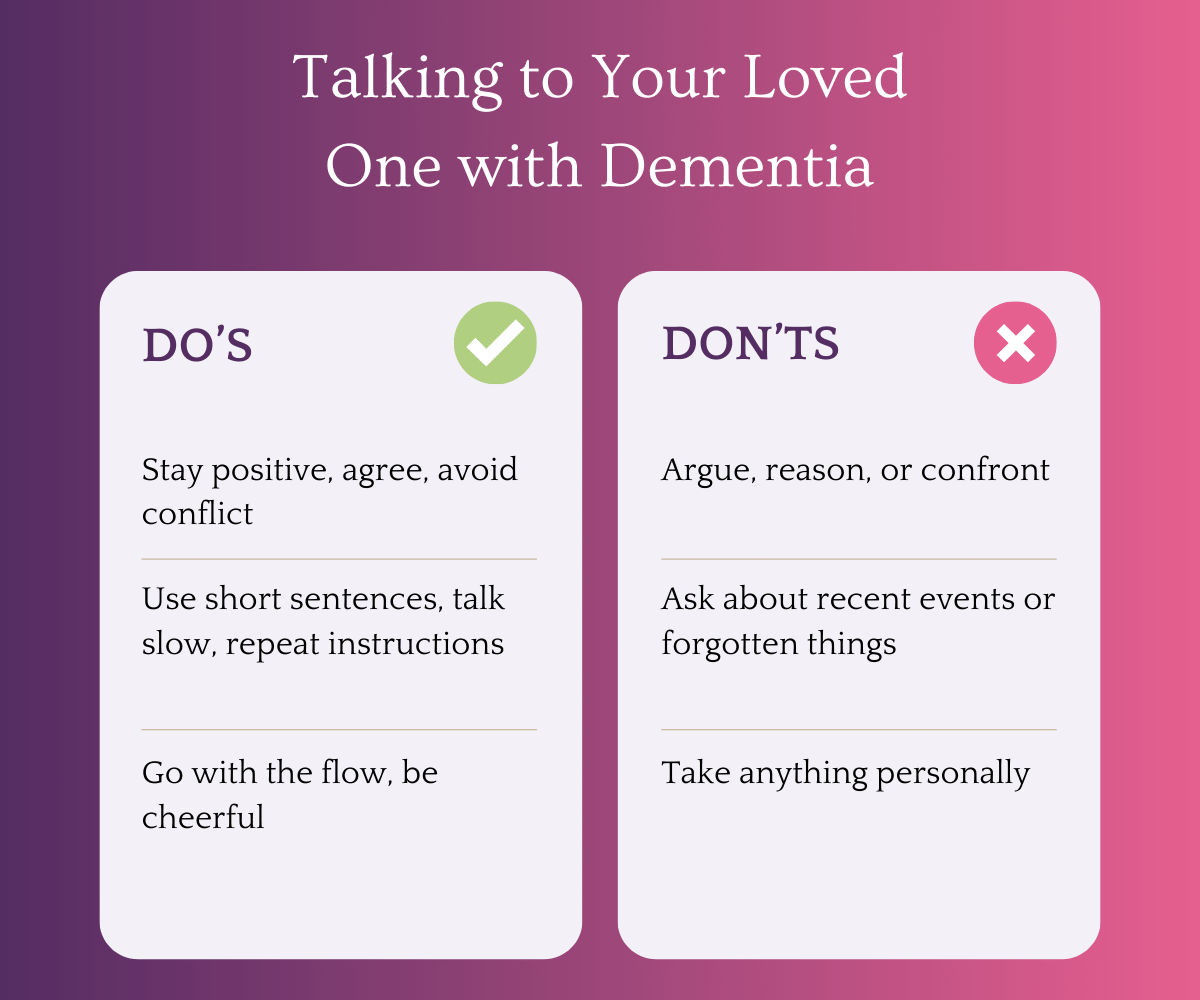
Living a long life can be wonderful, but aging often gives rise to some difficult health issues. Dementia is one of the most challenging health concerns for families and caregivers. It is a condition that causes memory loss, problem-solving difficulties and a general deterioration of thinking ability that seriously impacts daily life. In the following article, HonestMed offers information on this serious condition and tips that can make dealing with dementia and home care easier for family members and caregivers.
What Causes Dementia?
Dementia describes a group of symptoms, but it is not a single disease. The symptoms are the result of abnormal brain changes that cause a decline in thinking skills and cognitive abilities that can also impact feelings and relationships. Although historically, dementia was referred to as “senility” or “senile dementia” and was thought to be a normal part of aging – that is no longer the case. Health professionals have identified dementia as a collection of symptoms caused by diseases, rather than an inevitable consequence of aging.
The primary cause of dementia is Alzheimer’s disease which accounts for 60-80 percent of cases. Currently there are 6.9 million Americans living with Alzheimer’s disease, according to the Alzheimer’s Association. The second most common cause is vascular dementia, which involves microscopic blood vessel blockage or bleeding in the brain. This can be exacerbated by untreated hypertension, so it’s very important that blood pressure be monitored and controlled throughout adulthood and as people age. When multiple conditions contribute to dementia, it’s known as mixed dementia
Types of Dementia
Besides Alzheimer’s disease and vascular dementia, there are a number of conditions that can increase the likelihood of someone developing dementia. The following are some types of dementia associated with other conditions:
- Creutzfeldt-Jakob disease: This is an extremely rare, rapidly progressing brain disease that primarily affects those 55 and older. It is often fatal within six months and causes are generally unknown. It occurs in one in one million people.
- Dementia with Lewy Bodies: Lewy Body is a type of Alzheimer’s disease but this type of dementia also affects some people with Parkinson’s disease. Symptoms can include the mental decline associated with dementia as well as some physical deterioration such as rigid muscles, a hunched posture and walking with a shuffle or trouble initiating movement.
- Down Syndrome: People with Down Syndrome have an increased risk of developing dementia as they age.
- Frontotemporal Dementia: This is a type of dementia caused by progressive nerve cell loss in the frontal and temporal lobes of the brain. It occurs more often in older adults although there have been cases of people as young as 20 developing this type of dementia.
Huntington’s Disease: This is a progressive brain disorder resulting from a defective gene. It causes changes to the central area of the brain, with symptoms that affect bodily movements, thinking skills and emotional state.
Helpful Tips for Dementia Caregivers and Family Members
Although taking care of a patient or loved one as they age is always challenging, caring for someone with dementia can be particularly difficult. Family members may feel they are losing their loved one as the disease progresses, while both family and caregivers must deal with behavioral issues and a decline in thinking ability. These aspects can make caregiving seem overwhelming and it is why dementia profoundly affects the patient and everyone who loves or cares for them.
Dementia typically progresses over several years and there are differences in caring for those with early stage versus advanced dementia. In the early stages, the dementia patient is usually at home. As the disease advances, institutional care is often required. The following tips are for family members and caregivers dealing with dementia care at home.

Promote Independence in the Early Stages
Early dementia patients may use reminders & notes to manage daily tasks. This initial diagnosis window allows planning for future care needs when independence declines.
- Make safety a priority: Ensure that the loved one or patient is able to perform daily tasks and activities without incurring any harm. If the dementia patient feels they are able to continue independently, encourage them, but be sure to continue to monitor and supervise their daily activities.
- Plan for the future: A loved one in the early stages of dementia will want to have a say in their future while they are still able to plan it. Make sure to include them in decisions that will occur as the dementia advances, so they have as much control as possible.
- Don’t stress the patient: Dementia sufferers do poorly when stressed, so try and keep their activities as stress-free as possible. For instance, if taking their medications in the right dose and at the right time causes stress, get them a seven-day pill organizer and help them fill it weekly so their medications are readily available each day.
- Create a safe space: Let your loved one ask for help. Establish a “help cue” like a word or phrase that ensures they feel comfortable when they need help. Don’t make assumptions about what they can or can’t do.
- Provide appropriate level of support: Dementia support needs increase as the disease progresses. Early independence may decline, requiring assistance with appointments, memory, finances, medications, and transportation.
- Enjoy activities together: Find activities the loved one and caregiver or family member can do together and continue to discuss plans for the future. Check with the dementia patient regularly to make sure they receive the right the level of support.
Be Aware of the Emotional Impact of Dementia
Dementia profoundly impacts the individuals who have it and everyone who loves them. The emotional toll can be the most challenging part of caring for a loved one or patient with dementia. Caregivers and loved ones may experience the following emotions:
- Denial of the diagnosis: Although initial denial after hearing such a difficult diagnosis may provide time for loved ones to cope, it won’t help in the long run. It’s important for family members to accept the situation and plan for the future. That’s the only way to help a loved one accept their condition. This acceptance will also help family members deal with dementia in a more loving and patient way.
- Fear of the future: Though planning for the future is important in the early stages, constant fear of how dementia will progress and how it will impact one’s life can impede the ability to provide the support the loved one needs. Focusing on the present, will help both the caretaker and the dementia patient.
- Feelings of anger and frustration: Dementia diagnosis can trigger fear, anger, and resentment in families due to future care needs. Open communication and planning with loved ones and healthcare professionals is crucial to maintain a positive outlook. Consider seeking counseling or journaling for emotional support. Caregivers should also prioritize personal relationships.
The Do’s and Don’ts of Communicating with a Loved One with Dementia

When communicating, try to do the following:
- Talk in short sentences and allow the loved one with dementia plenty of time to understand what is being said
- Give instructions and then repeat them with exactly the same words
- If resistance is present, don’t persist – try again later
- Remain positive, agree and accept blame even if it’s not true
- Leave the room to avoid confrontation if necessary
- Go with the flow as much as possible and try to remain cheerful – the disease progresses so being positive can calm the waters
The following are some don’ts when communicating:
- Don’t try to reason or argue with the dementia patient
- Don’t ask questions about recent events and don’t tell them they have forgotten something
- Don’t confront them about anything
- Above all, don’t take anything they say personally
Helping a Loved One with Dementia Stay Healthy
No matter how far the dementia has progressed, it’s important to try and keep the loved one with dementia healthy. The following are suggestions for helping dementia patients achieve well-being:
- Physical activity is important: It’s important to help the dementia patient stay as physically active as possible. Perhaps there is an activity they have always enjoyed such as golf or hiking and in which the caregiver can participate. Research shows that remaining physically active can be beneficial for dementia sufferers.
- Ensure a balanced diet: Many dementia sufferers experience a loss of appetite as their condition advances. This makes it critical that they receive as healthy a diet as possible. A balanced diet that includes low-fat options and complex carbohydrates such as vegetables and whole grains will help them get the most benefit out of each meal.
- Establish a daily routine: Having a daily routine will help the dementia patient have more confidence and less fear. This can also help reduce stress for both the caretaker and the dementia patient.
- Late stage assistance: Although late stage dementia patients can do very little for themselves, caretakers and family members can still provide comfort with a gentle touch or relaxing music.
Caretakers Need Support Too
It is critical that anyone working with a dementia patient be able to also care for themselves. The following are some tips for how caretakers can maintain their well-being:
- Add “me-time” to the schedule: Make sure the schedule includes space for the caretaker to have some personal time away from their duties. Perhaps a friend or family member can spend time with the person living with dementia to have lunch or visit while the caretaker is away.
- Build a support network early: Caretakers should start building a support network in the early stages of dementia so that as the disease progresses, they will be able to relieve the stress of constant care. Caretakers should not be afraid to accept help from their friends or family members. It’s critical for the caretaker’s well-being that they have people they can rely on.
- Get support from other caretakers: There are resources where caretakers and family members gather with others who share the experience of living with someone experiencing dementia. This sort of emotional support from those who understand the challenges of caring for a dementia patient is vital to maintaining a positive outlook. The Alzheimer’s Association website includes information about both online and in-person support groups.
Eat healthy and exercise: Eating a balanced nutritious diet and exercising regularly will help maintain the energy and mindfulness needed to cope with dementia in a loved one or patient. If caretakers don’t attend to their own needs, they will be less able to provide support for the person they are caring for.
Keep Abreast of Dementia Research
It is important for family members to monitor research into Alzheimer’s disease and dementia so that they can make sure their loved one is getting the best treatment possible. There are also studies that the dementia patient may be able to take part in. The Alzheimer’s Association includes information on their website about the research, progress and studies being done to alleviate dementia diseases.
HonestMed Is Here to Help
At HonestMed, we understand the challenges caregivers and family members face in caring for someone living with dementia. We recently published a blog with information on how families can obtain financial support to help ease the burden of caring for a loved one according to your state of residence. Honestmed also offers a wide variety of economically priced health and wellness products designed to enhance your efforts to provide the best care possible.
Learn more by speaking to an HonestMed Care Specialist at (833) 933-2323. We’re here to provide you with product knowledge, support, and expertise to ensure you get the right products for your unique needs and budget. You can also browse our Honest Ideas for published articles with valuable tips on caregiving and more.




